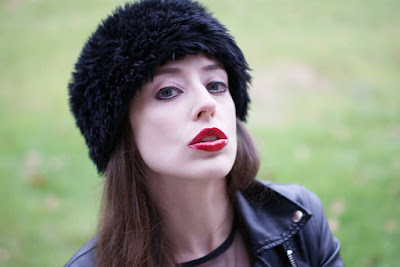(Spoilers, all of them)
people are just not good to each other
A little girl mucks about in the back of a car. Her behaviour gets worse and worse; eventually she takes off her seatbelt, and her dad, his attention now thoroughly distracted, crashes the car. To reconstruct her smashed skull, a titanium plate is implanted, which leaves her with a distinctive spiral scar on the side of her head. Leaving the hospital, the child ignores her parents, running to the car, which she embraces, and kisses.
Cut to her adult life: now she is a bisexual, genderfluid adult dancer. She is also a casual serial killer, whose lack of care attracts police attention. She has sex with a fancy custom car, and gets pregnant by it. As her body experiences the changes that might come from bearing a semi-mechanical mutant made of flesh, metal and engine oil, she goes on the run.
Look. All that is probably enough to be getting on with, but really that doesn’t even get you past the first half of Julia Ducorneau’s stunning 2021 film Titane (simply, “Titanium”). And you really need to have seen this movie before you read this next part. I mean, you can read this and you’ll be fine, it won’t ruin your life, so perhaps rather than tell you that you need to have seen it maybe it is better to say that I want you to have seen it. I think it’s a film that travels in directions that are better seen than talked about. And I'm going to be breaking down scenes in detail.
Now, while “Spoiler” discourse is usually toxic and stupid, a way to strangle discussion and thought in the crib, some films are simply better experienced without you knowing anything about them. And there’s a reason a film that looks on paper like a fairly direct piece of New French Extremity wound up winning the 2021 Palme d’Or (and a reason that, quite frankly, if I’d been on that jury at Cannes, I’d have voted to give it the Palme d’Or as well). Because what happens next turns a film with a bit of body horror and some quirky and gory murders into something entirely different. It becomes something smaller, stranger, and oddly, dysfunctionally beautiful.
But calling it dysfunctional isn’t right either. Like the highly polished custom that fathers Alexia’s child, Titane hides precision engineering under its shining bodywork, and its unique quirks a signifier of a surprising amount of passion, and even love.



.jpg)




